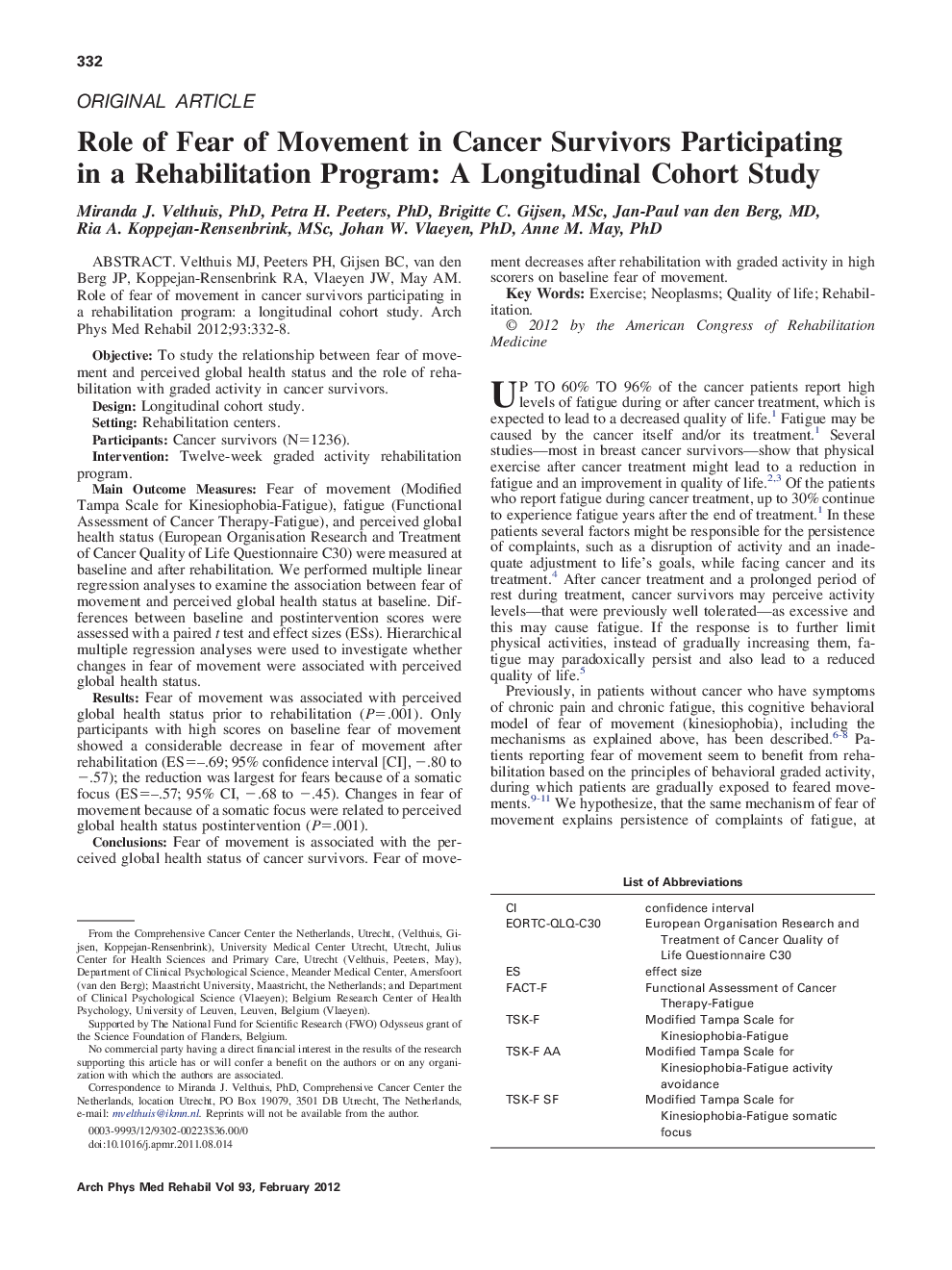| کد مقاله | کد نشریه | سال انتشار | مقاله انگلیسی | نسخه تمام متن |
|---|---|---|---|---|
| 3449723 | 1595729 | 2012 | 7 صفحه PDF | دانلود رایگان |

Velthuis MJ, Peeters PH, Gijsen BC, van den Berg JP, Koppejan-Rensenbrink RA, Vlaeyen JW, May AM. Role of fear of movement in cancer survivors participating in a rehabilitation program: a longitudinal cohort study.ObjectiveTo study the relationship between fear of movement and perceived global health status and the role of rehabilitation with graded activity in cancer survivors.DesignLongitudinal cohort study.SettingRehabilitation centers.ParticipantsCancer survivors (N=1236).InterventionTwelve-week graded activity rehabilitation program.Main Outcome MeasuresFear of movement (Modified Tampa Scale for Kinesiophobia-Fatigue), fatigue (Functional Assessment of Cancer Therapy-Fatigue), and perceived global health status (European Organisation Research and Treatment of Cancer Quality of Life Questionnaire C30) were measured at baseline and after rehabilitation. We performed multiple linear regression analyses to examine the association between fear of movement and perceived global health status at baseline. Differences between baseline and postintervention scores were assessed with a paired t test and effect sizes (ESs). Hierarchical multiple regression analyses were used to investigate whether changes in fear of movement were associated with perceived global health status.ResultsFear of movement was associated with perceived global health status prior to rehabilitation (P=.001). Only participants with high scores on baseline fear of movement showed a considerable decrease in fear of movement after rehabilitation (ES=–.69; 95% confidence interval [CI], −.80 to −.57); the reduction was largest for fears because of a somatic focus (ES=–.57; 95% CI, −.68 to −.45). Changes in fear of movement because of a somatic focus were related to perceived global health status postintervention (P=.001).ConclusionsFear of movement is associated with the perceived global health status of cancer survivors. Fear of movement decreases after rehabilitation with graded activity in high scorers on baseline fear of movement.
Journal: Archives of Physical Medicine and Rehabilitation - Volume 93, Issue 2, February 2012, Pages 332–338